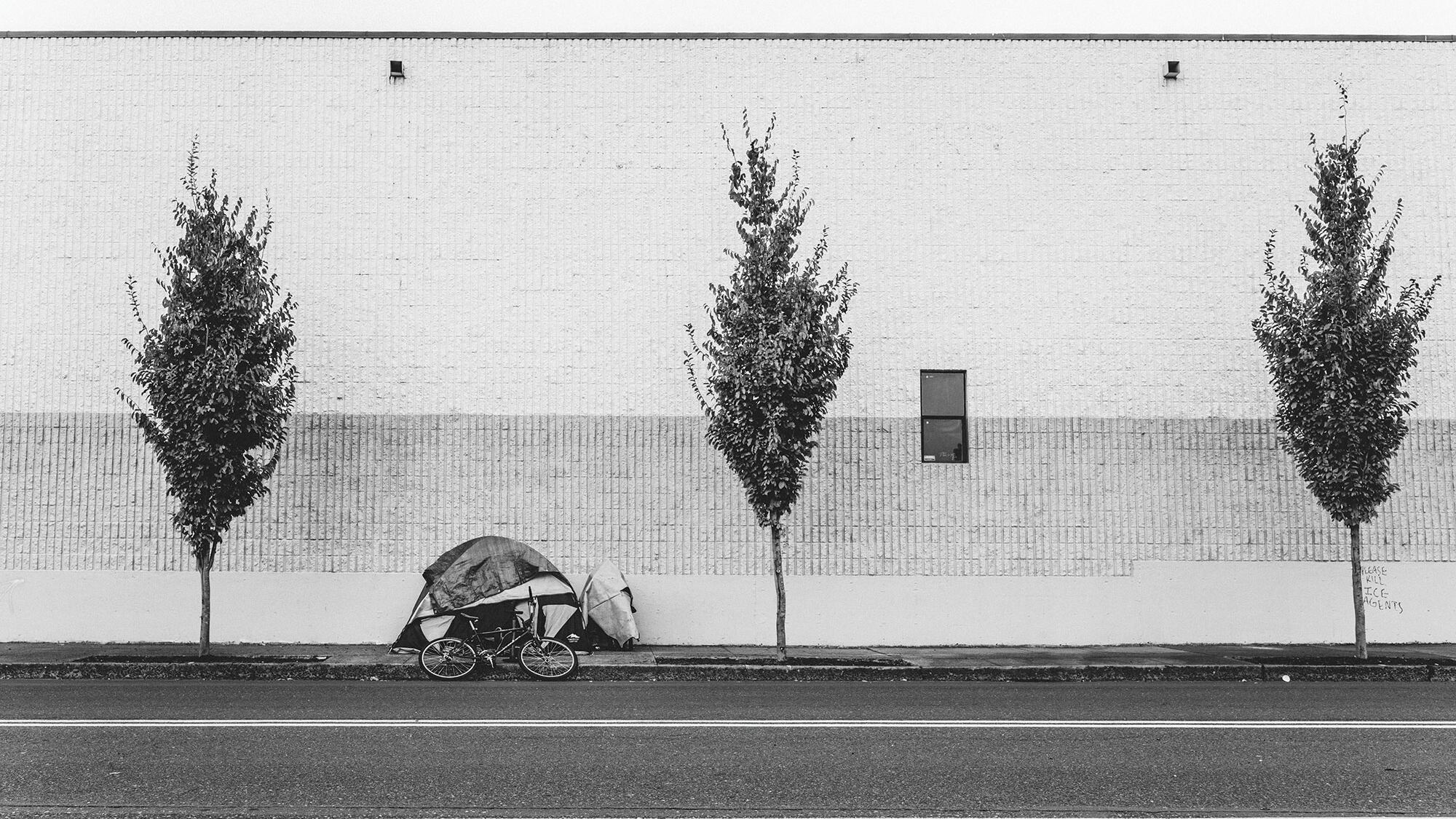Portland-area governments will open three tent villages next week to give homeless people safe places to sleep during the COVID-19 pandemic.
City Hall will provide tents, sleeping bags and cots on elevated platforms. The three sites—two on the Central Eastside and another in Old Town—will be fenced, with 45 tent platforms at each location, separated by at least 10 feet. People will not be allowed to bring their own tents.
The opening of the villages was previously reported by Street Roots.
The tent villages, which local officials have dubbed "outdoor emergency shelters," are an attempt to provide some safety, hygiene and order among an unhoused population that has lost access to many of its most reliable facilities. Libraries and coffee shops are closed—along with their restrooms. Many social service providers have reduced their hours and access to common areas. Food kitchens are overwhelmed with demand.
So the tent villages will offer a few essentials: "drinking water, a phone charging station, and cooking area and regular trash service." Local officials promise a shower truck that will rotate between the three villages.
"The reality is that a stay-at-home order leaves those without homes to return to behind, and we can't let that happen," City Commissioner Jo Ann Hardesty said in a statement. "While the housed community can take refuge in their homes and have the bulk of their needs met during this time, our houseless neighbors have lost the many resources and support networks they depended on. These sites are critical for the public health, safety and dignity of our houseless community, and I appreciate the collaboration and effort it took to turn these into a reality."
Homeless villages have been a mainstay in Portland for three decades, since the founding of Dignity Village near Portland International Airport in the 1990s. But those villages were created by homeless people and their advocates, and often fought to achieve city sanction. In this case, it's local governments who are working with nonprofits to create the sites.
There's no indication that homeless people will be required to move into the villages.
The founding arrives in the midst of questions about how to prevent the spread of COVID-19 in a city where a disproportionate number of people sleep outside. Seattle, which has a similar problem, has seen an outbreak of hepatitis A, spread via feces among unhoused people with no restroom facilities.
Multnomah County has turned local hospitality spaces, including the Oregon Convention Center and the Jupiter Hotel, into homeless shelters. But those new venues don't add shelter capacity—they just increase the physical distance between people sleeping indoors.
The three villages are aimed at the demographic least likely to already be served by shelters: adults, either single or in couples. Families and teenagers won't be allowed. Spaces may be reserved through the nonprofit JOIN. Pets are allowed.
Local officials say they hope to begin construction on the village sites this weekend, and open them as soon as next week. The three chosen locations are at Southeast Water Avenue and Main Street; Southeast Water Avenue and Salmon Street; and Northwest Broadway and Hoyt Street.

